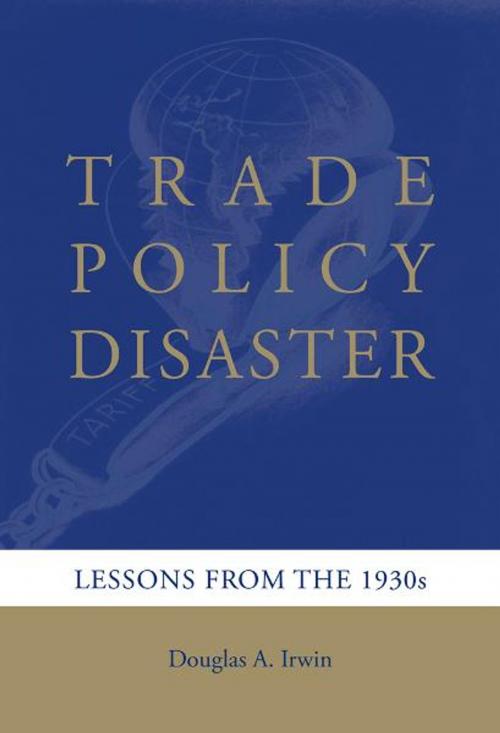Trade Policy Disaster
Lessons from the 1930s
Business & Finance, Economics, Economic History, Nonfiction, Social & Cultural Studies, Political Science, International, International Relations| Author: | Douglas A. Irwin | ISBN: | 9780262297745 |
| Publisher: | The MIT Press | Publication: | October 21, 2011 |
| Imprint: | The MIT Press | Language: | English |
| Author: | Douglas A. Irwin |
| ISBN: | 9780262297745 |
| Publisher: | The MIT Press |
| Publication: | October 21, 2011 |
| Imprint: | The MIT Press |
| Language: | English |
The extreme protectionism that contributed to a collapse of world trade in the 1930s is examined in light of the recent economic crisis.
The recent economic crisis—with the plunge in the stock market, numerous bank failures and widespread financial distress, declining output and rising unemployment—has been reminiscent of the Great Depression. The Depression of the 1930s was marked by the spread of protectionist trade policies, which contributed to a collapse in world trade. Although policymakers today claim that they will resist the protectionist temptation, recessions are breeding grounds for economic nationalism, and countries may yet consider imposing higher trade barriers. In Trade Policy Disaster, Douglas Irwin examines what we know about trade policy during the traumatic decade of the 1930s and considers what we can learn from the policy missteps of the time.
Irwin argues that the extreme protectionism of the 1930s emerged as a consequence of policymakers' reluctance to abandon the gold standard and allow their currencies to depreciate. By ruling out exchange rate changes as an adjustment mechanism, policymakers turned instead to higher tariffs and other means of restricting imports. He offers a clear and concise exposition of such topics as the effect of higher trade barriers on the implosion of world trade; the impact of the Smoot-Hawley tariff of 1930; the reasons some countries adopted draconian trade restrictions (including exchange controls and import quotas) but others did not; the effect of preferential trade arrangements and bilateral clearing agreements on the multilateral system of world trade; and lessons for avoiding future trade wars.
The extreme protectionism that contributed to a collapse of world trade in the 1930s is examined in light of the recent economic crisis.
The recent economic crisis—with the plunge in the stock market, numerous bank failures and widespread financial distress, declining output and rising unemployment—has been reminiscent of the Great Depression. The Depression of the 1930s was marked by the spread of protectionist trade policies, which contributed to a collapse in world trade. Although policymakers today claim that they will resist the protectionist temptation, recessions are breeding grounds for economic nationalism, and countries may yet consider imposing higher trade barriers. In Trade Policy Disaster, Douglas Irwin examines what we know about trade policy during the traumatic decade of the 1930s and considers what we can learn from the policy missteps of the time.
Irwin argues that the extreme protectionism of the 1930s emerged as a consequence of policymakers' reluctance to abandon the gold standard and allow their currencies to depreciate. By ruling out exchange rate changes as an adjustment mechanism, policymakers turned instead to higher tariffs and other means of restricting imports. He offers a clear and concise exposition of such topics as the effect of higher trade barriers on the implosion of world trade; the impact of the Smoot-Hawley tariff of 1930; the reasons some countries adopted draconian trade restrictions (including exchange controls and import quotas) but others did not; the effect of preferential trade arrangements and bilateral clearing agreements on the multilateral system of world trade; and lessons for avoiding future trade wars.















